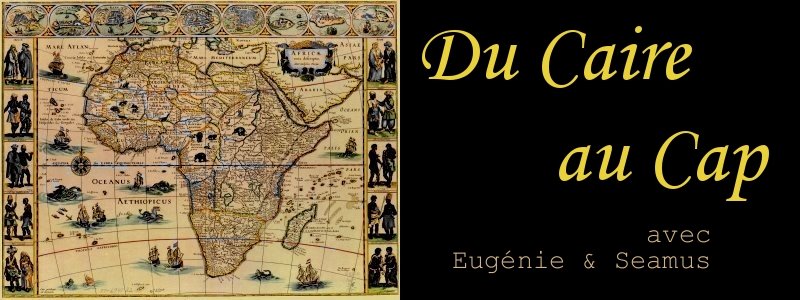Egyptians tend to eat 3 times a day. Lunch usually comes around 4:00-5:00 pm and dinner is closer to 10:00 pm. The dietary restrictions of haram and allowances of halal in Islamic homes has had a long history of interpretation. Whilst most contemporary Sunni and Shia sects agree on the present beliefs as to the intentions of Allah on this subject, you can find differences in certain Sufist and other less populous sects.
A general rule of thumb from the hadith regarding meat follows that an animal whom is carnivorous, whom eats insects, or whom "creeps without ears" (reptilians) are forbidden. As are (from various sources including the Koran) animals with hoofs (except camels), animals who eat their own feces, and pigs. In order for the meat that is allowed to be "pure" to Muslims, it must be slaughtered in accord to the rules for halal. The animal must be killed with as little pain and as quickly as possible (usually a quick slit of it's jugular artery renders the animal unconscious within seconds, and the blood must be drained from the animal entirely before it is to be consumed (blood, as in Judaism, is interpreted as an essence of life). While most Muslims interpret alcohol as forbidden, the Koran only specifies wine and so is also debated in some sectarian homes.

Above: preparation of ful / Préparation du ful
Dinner tends to be much softer consisting of a soft sauce "coal" mixed with rice and vegetables, barley, noodles or lentils, with a variety of salads (lots of chick peas included). Egyptian cuisine, despite how those living here would describe it, is immensely vegetarian/vegan friendly. The philosophy of food was very connected to that which was from the ground, as well as the prices of meat being higher, there is a healthy variety for animal friendly sorts. Eggplants, zucchini, tomatoes, carrots, fresh herbs, yams, and all sorts of beans are found fresh all year round on almost every street corner.
Thirsty anyone?
-
Tea (chai) and the Turkish coffee (hawa) are both national past-times at the small cafés and shisha bars. The tea is brewed according to the taste; chai kocheri is a strong earthy loose tea, and if you don't specify you will end up with a lipton tea bag looking at everyone else's glass in envy. Coffee may be ziada (very sweet), masbouth (medium) or saada (without sugar).
- Fresh fruit juices are sold all over the city (mango, guava, pomegranate, pears, cactus fruit, sugar cane, etc). The "lee-moon" or lemon juice is also very popular at most cafés.
- Karkadé is an infusion of hibiscus petals which can be served cold or warm.
- Sahlab is a mixture of warm milk, shaved coconut, nuts, cinnamon, sesame seeds and spices.
Other specialties:
- Dolma: stuffed vine leaves (usually vegetarian).
- Babaghanouss: mashed eggplant with oil, vinegar and Tahina.
- Kochari: specialty rice, pasta, and lentils interspursed with fried onions and tomato sauce.
- Molokhia: soup made of molokhia (corchorus/jute mallow) which has the slimy texture of seaweed or okra when cooked, mixed with garlic and pieces of meat (chicken, lamb, rabbit).
- Maachi vegetables stuffed with meat and rice.
- Kebab: skewed lamb served with parsley.
- Stuffed pigeons.
- Kofta: minced meat balls.
Desserts :
- The baklava: laminated diamond-shaped, almond paste, sugar and honey.
- Harissa: semolina cake.
- Konafa: pastry cream sprinkled with angel hair.
Les Egyptiens mangent en général 3 fois par jour. Le déjeuner étant pris à 16-17 heures et le dîner à 22 heures. Le foul, une purée de fèves et d'oignons parfumée à l'ail, au citron et au cumin est la base du petit déjeuner.

Pour commencer le repas,
- Houmous, purée de pois chiches parfumée à la tahina (crème de sésame au citron)
- Dolma, feuilles de vignes farcies
- Babaghanouss, aubergines écrasées avec huile, vinaigre et tahina
- Le kochari, spécialité à base de riz, de pâtes, de lentilles parsemé
d'oignons frits et de sauce tomate. - La molokhia, soupe gluante à base de feuilles du même nom (sorte d'épinards) et aromatisée à l'ail. On peut y ajouter de la viande (poulet, agneau ou lapin).
- Maachis, légumes farcis à la viande
Les viandes,
Les Egyptiens consomment beaucoup de produits carnés, il est ainsi courant de commander une livre de viande au restaurant. Le poulet et le mouton sont très utilisés. La viande souvent grillée est accompagnée d'une salade avec tomate, oignons et concombre, la salata baladi.
- Kebâb, brochettes d'agneau servies sur du persil.
- Kofta, boulettes de viande hachée.
- Le pigeon farçi est aussi très apprécié.
Les desserts,
Les Egyptiens aiment le sucre sous toutes ses formes: miel, mélasse…. Les pâtisseries et autres gâteaux sont donc très appréciés.
- La baklawa, feuilletés en forme de losange, de pâte d'amande, de sucre et de miel.
- Harissa, gâteau de semoule.
- Konafa, pâtisserie à la crème parsemée de cheveux d'anges.
- Le thé, chai, et le café à la turque, qawa, sont les boissons nationales. Le thé kocheri est un thé noir en vrac meilleur que le Lipton Yellow très diffusé. Les boissons chaudes peuvent être ziâda (très sucré), masbouth (moyen) ou saâda (sans sucre).
- Les jus de fruit, se vendent partout et varient en fonction des saisons (mangue, goyave, grenade, figues de barbarie).
- Le lamoun ou jus de citron est très consommé en été.
- On trouve d'autres boissons très populaires tel que le karkadé, décoction de pétales d'hibiscus (froid ou chaud selon les saisons), le sahlab, un mélange de lait chaud, de noix de coco râpée, de noix, de cannelle, de sésame et d'épices.







